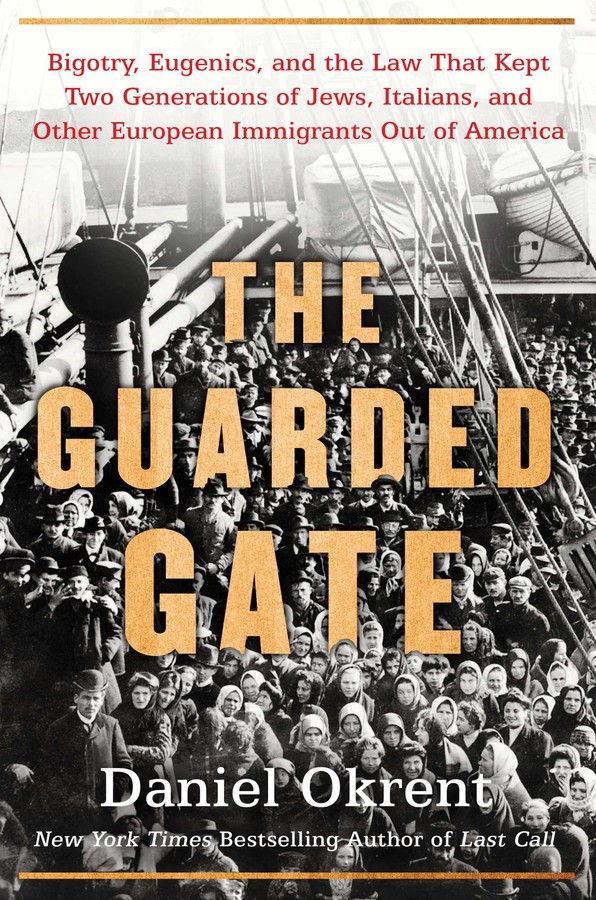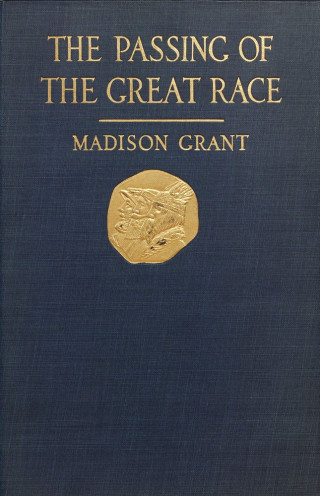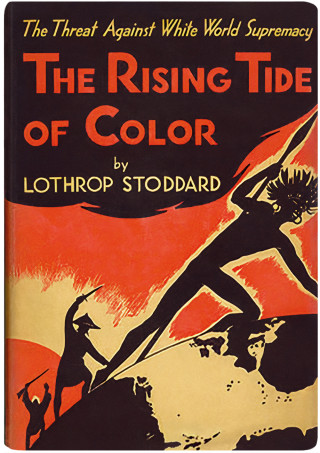As its title suggests, Grant’s Passing of the Great Race was a nostalgic lamentation of decline and fall, the kind always predicated on a lost Eden. Grant’s paradise was the peaceful days before 1880, when America lived in democratic harmony thanks to its “homogeneous population of Nordic blood,” as he wrote in his introduction to Stoddard’s Rising Tide, dispensing with millions of indigenous and African-Americans, not to mention the entirety of the Civil War, in a single preposterous assertion. The Civil War, Grant complained, “shattered the prestige of the white race and it will take several generations and perhaps wars to recover its former control.”
The chillingly dismissive phrase “perhaps wars” is what makes his message fundamentally fascist—welcoming violence to safeguard racial prerogatives. Other fascists agreed: Hitler told Grant in a letter that The Passing of the Great Race was “my bible,” and the book was entered into the Nuremberg trials by the defense as evidence that the United States had engaged in the crimes for which they were prosecuting Nazi doctors, including forced sterilization and experimental surgery. As Stefan Kühl showed in The Nazi Connection: Eugenics, American Racism, and German National Socialism (1994), the Nazis derived their eugenicist ideas from American theories, just as they used American race laws to legitimate the Nuremberg Laws of 1935. When Charles Lindbergh gave his first national radio broadcast in 1939, urging America to stay out of World War II, he quoted Grant almost verbatim, a few months before becoming the spokesman for the isolationist America First Committee.
One of the many ironies of the implacable defense of class prerogative is the way nativists insist privilege is theirs by right, while tacitly recognizing that it requires ruthless suppression of others. If their superiority is so natural, why do they have to fight so hard to maintain it? Eugenics provided the “sanctification” that, as Max Weber once observed, entitled groups always seek, desiring “a cosmos of acquired rights” above the mere brute fact of the power they enjoy. George Bernard Shaw declared in 1904, “Nothing but a eugenic religion can save our civilization.” Galton agreed that eugenics should be a belief system, urging it as “the orthodox religious tenet of the future, for eugenics cooperates with the workings of nature by securing that humanity shall be represented by the fittest races.” God may have made white people superior, but their power was anointed by science.
These ideas have acquired different names and valences over the years (Saxonism, Anglo-Saxonism, Nordicism, white supremacism, alt-right, white genocide) and different slogans (America First, 100 Percent American, Make America Great Again, You Will Not Replace Us). But they have always relied on a misrecognition of the origins of power, and amounted to the same thing: some people deserve better, while others are untroubled by moldy beans and wretched misery. If they’re thirsty, they can drink from toilet bowls.



